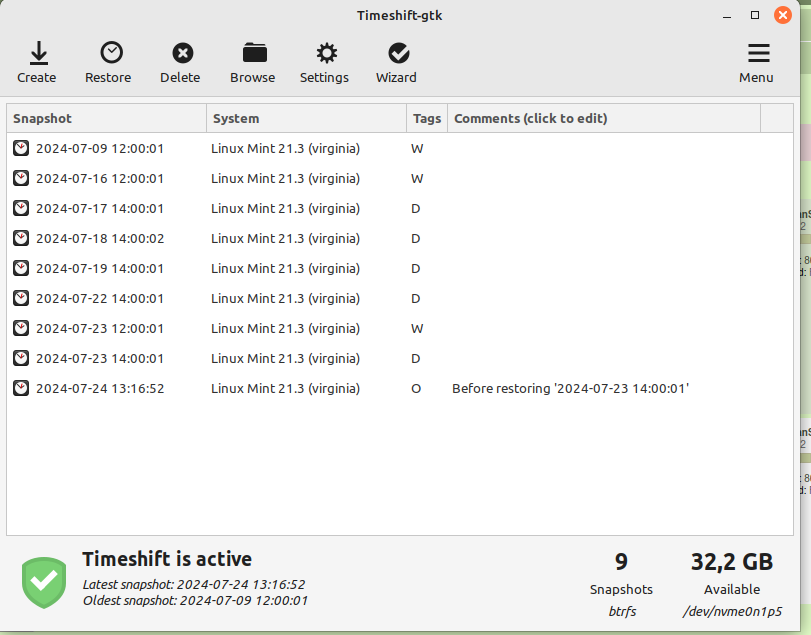The big names mostly can't yet, but some lesser-known Linux distributions offer the ability to undo updates and recover from damage, even automatically.
With a new version of Linux Mint available, a lot of people – especially less-technical types – are about to upgrade their PCs. As with almost all major upgrades, inevitably some some stuff won't work with the new version. Going back is difficult, although Mint does have a solution, and so do some smaller distros.
Linux Mint includes the Timeshift utility, originally developed by Teejeetech, but that doesn't make it invulnerable. No operating system is, as amply demonstrated recently by CrowdStrike. If installed on a file system that supports copy-on-write (COW) snapshots, Timeshift can use that, but if you chose some other disk format, it can also back up your system files using rsync to another drive.
For now, most Linux file systems can't handle snapshotting, including the default ext4 or its predecessors, or XFS, or the now-vanishing ReiserFS. Several existing file systems that work on Linux do include snapshot support, including bcachefs, ZFS, and Btrfs. However, there are solid reasons why most distros don't include the functionality.
For instance, while OpenZFS does support snapshots, and several distributions include ZFS, including TrueNAS Scale, Ubuntu, Proxmox, Void Linux, and NixOS, the ZFS code can't be compiled into the Linux kernel due to an incompatible software license. Thus, from appropriate levels of caution, OpenZFS isn't part of either SUSE's or Red Hat's enterprise offerings. Their compliance with multiple legal requirements and certifications is a big part of their corporate appeal. (For the curious, both companies maintain lists of their certifications. Red Hat has a 16-section list and SUSE a respectable dozen sections. Some companies will pay good money for this stuff.)
Red Hat removed Btrfs from RHEL six years ago, and is working on its own, all-GPL combined volume management system and file system called Stratis. Since Btrfs was invented there, Oracle had a simpler route available for its RHEL-compatible distro: Oracle Linux offers a kernel with Btrfs.
Bcachefs, meanwhile, is relatively new and immature. It only appeared at the beginning of this year in kernel 6.7, meaning that it's only been in three releases of the kernel so far. It's a little bit too new for anyone else to support it just yet.
So, for now, Btrfs is the most mature file system in the Linux kernel that can do snapshots. This is why SUSE's Snapper uses Btrfs by default, although it also supports LVM, and can be configured to use that instead.
Btrfs + Timeshift saved my broken Linux Mint

